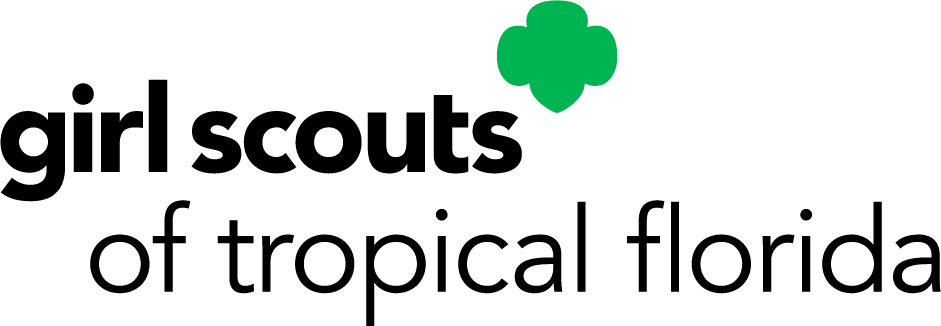Gold Award Girl Scout Spotlight: Julianna C.
“Sharing Golden Smiles and Stories” is a literacy program for individuals with Down Syndrome and cognitive disabilities. Juli worked with 50 students aged 1-32 in one-on-one and small group sessions and provided each student with an audiobook featuring their parents’ voices for a personalized reading practice at home. Juli collaborated with GiGi’s Playhouse to install a bookcase with audiobooks and a binder of academic and parental resources. The program’s sustainability is ensured by the Barbara Goleman Senior High School National Honor Society, which will visit GiGi’s Playhouse annually to read with the students.
Julianna is a Girl Scouts of Tropical Florida Changemaker and attends the University of Alabama. She has been awarded the National Hispanic Recognition Scholarship which provides 100% tuition for 4 years and additional support.
What College do you plan to attend? Have you decided on a major?
I will attend The University of Alabama with the National Hispanic Recognition Scholarship which covers 100% tuition for four years, first year housing, and $500 every semester.
What is the title of your Gold Award project?
Sharing Golden Smiles and Stories
Tell us more about your project and how you completed your Gold Award
My Girl Scout Gold Award project, entitled “Sharing Golden Smiles and Stories,” is a literacy program dedicated to teaching individuals with Down Syndrome and cognitive disabilities how to read. I worked with 50 students aged 1-32 years old in one-on-one and small group sessions. After each session, every student was given a recordable book with their parents’ voices. The book allows them to practice reading at home, make the visual and audio learning connection, and have a personalized keepsake of their parents' voices.
At GiGi’s Playhouse, a Down Syndrome Achievement Center, a bookcase containing various recorded audiobooks and a binder of academic and parental resources is available for students and parents to access at any time. In addition to working with the students, I collaborated with 15 community leaders, each of whom recorded a book to keep at the center. I also informed the leaders about GiGi’s Playhouse, Girl Scouts, and the importance of literacy, so they could appropriately direct anyone who inquired.
Sustainability will be upheld by Barbara Goleman Senior High School National Honor Society, which has agreed to visit GiGi's Playhouse annually to read with the students.
Why is this project important to you? What gave you the inspiration to approach this topic the way that you did?
This project, along with my other Girl Scout Award Projects, has focused on bringing literacy to children. From the start, I knew I wanted to introduce reading to the students I was working with in a fun and unintimidating way. To achieve this, I adapted each session to the interests, attention spans, and reading capabilities of each student. My goal was for the sessions to be more than a one-time experience; I wanted to spark a lasting interest in reading.
I've always been passionate about reading and providing educational opportunities and resources to individuals with cognitive disabilities. Another issue I aimed to address in this project is the stigma surrounding people with Down Syndrome and their cognitive capabilities. Now, having completed the project, I believe even more strongly that the students are eager and motivated to learn. They are extremely passionate and full of potential, and I personally believe that with more resources and dedicated time, they can fully achieve their educational goals.
My project helped break this stigma by getting students and their caregivers excited about reading. By providing them with resources and a personalized book to take home, reading can now become an educational family activity.
What was the biggest challenge you faced and how did you overcome it?
An obstacle that I was proud to overcome was the English-to-Spanish language barrier. Many of the students and their caregivers are fluent in Spanish. While I know intermediate Spanish, I was able to communicate with the students and teach them new things, as well as explain the project to their caregivers. For example, during a session with Pedro, who is fluent in Spanish, we worked together so that Pedro could learn, write, and say numbers 1-10 in both Spanish and English.
How does your Gold Award project contribute to your future goals?
I believe these discoveries will aid my future as I hope to become a child and adolescent psychologist. Now that I have experience working with people with Down Syndrome, I can see myself working with special needs patients or conducting research studies to advance education for special needs students. Overall, I found it extremely rewarding to work with the students, as it allowed me to be more than just a project leader but also a special needs literacy advocate.
What did you learn about yourself in the process of completing your project?
Working on my Gold Award Project changed my life in unexpected ways. I discovered a passion for working with people with disabilities and reignited my love of reading. The project allowed me to get involved in my community and interact with caregivers and educators. Most of all, the most rewarding aspect of the project has been students expressing their desire to pursue higher education and their love of reading after working together.
What did you learn about your community in the process of completing your project?
By working on my project, I've learned a lot about my community and its efforts for the special needs population. On a local government level, I met with the Town of Miami Lakes Special Needs Advisory Board and learned about how they fundraise and spread awareness on special needs education and issues. I discovered various children's special needs centers and facilities in the area that I didn't know existed before. Most importantly, I met families and caregivers of children with special needs and learned about the struggles they face in finding therapy, treatment, and education.

